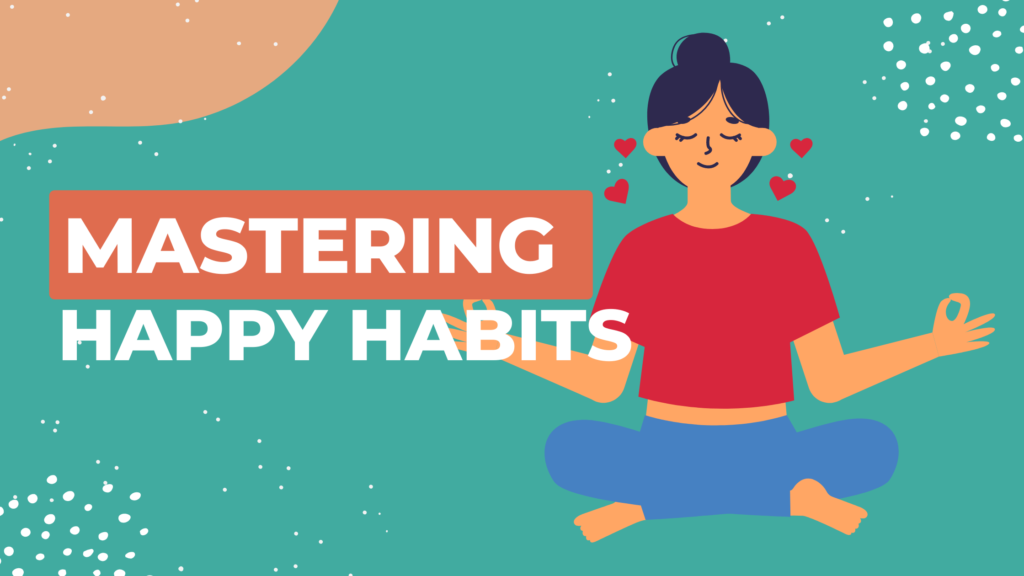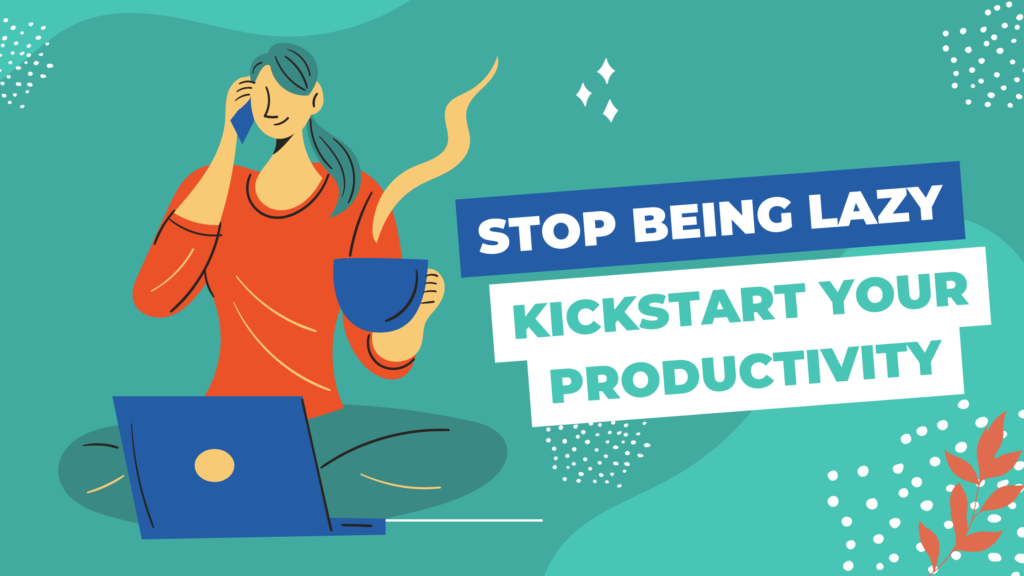Finding a passion can be an important aspect of mental health and well-being. When we have a passion, we feel more fulfilled, energized, and purposeful. In this article, we will explore the concept of finding a passion and why it is important for mental health. Our goal is to provide strategies and insights for those looking to identify and pursue their passions, as well as to highlight the benefits of doing so.
The concept of finding a passion
Finding a passion refers to discovering a deep interest or activity that brings joy and purpose to one’s life. It can be anything from a hobby or skill to a cause or career. When we have a passion, we are more likely to experience positive emotions, feel motivated, and have a sense of fulfillment.
Why finding a passion is important for mental health
Finding a passion can have a significant impact on mental health. Research has shown that pursuing a passion can increase life satisfaction, reduce stress, and improve overall well-being. Passion can also provide a sense of purpose and direction, which can be especially important during times of uncertainty or difficulty.
The Benefits of Finding a Passion
Finding a passion can have numerous benefits for your mental health and overall well-being. Let’s take a closer look at some of the ways it can positively impact your life.
Boosting Self-esteem and Confidence
When you find a passion that you enjoy and excel at, it can give you a sense of accomplishment and boost your self-esteem. You may feel a sense of pride in your abilities and accomplishments, which can lead to increased confidence in other areas of your life.
For example, if you discover a talent for painting and receive recognition for your work, this could increase your self-esteem and confidence not just in your artistic abilities, but in your overall abilities as well.
Reducing Stress and Anxiety
Engaging in activities that you are passionate about can be a great way to reduce stress and anxiety. When you’re doing something you love, you are more likely to be in a state of flow, which can help you forget about the worries and stressors of daily life.
Studies have also shown that engaging in hobbies and passions can lead to a decrease in cortisol, the hormone associated with stress.
Improving Overall Well-being
Having a passion and pursuing it regularly can improve your overall sense of well-being. When you have something to look forward to and enjoy doing, it can bring a sense of fulfillment and purpose to your life.
Research has shown that individuals who have hobbies and passions tend to be happier and more satisfied with their lives. In addition, pursuing a passion can help prevent burnout and increase resilience in the face of life’s challenges.
In conclusion, finding a passion can have numerous benefits for your mental health and overall well-being. It can boost your self-esteem and confidence, reduce stress and anxiety, and improve your overall sense of well-being.
Overcoming Obstacles to Finding a Passion
Even though finding a passion can be immensely rewarding, it’s not always an easy task. Many people face obstacles in the pursuit of their passions. Here are some of the most common challenges that people encounter and some tips for overcoming them.
Lack of Time or Resources
One of the most common barriers to finding a passion is a lack of time or resources. People may feel that they simply don’t have the time or money to invest in pursuing something that they love. However, there are several ways to overcome this obstacle:
- Make time for what matters: It’s essential to prioritize what’s important to you. Carve out time in your schedule for pursuing your passion, even if it’s just an hour a week.
- Get creative with resources: Pursuing a passion doesn’t have to be expensive. For instance, if you love writing, start with a basic notebook and pen.
- Consider alternative options: Think about alternative ways to pursue your passion. For instance, if you can’t afford to travel the world, consider learning about other cultures through books or online courses.
Fear of Failure or Judgment
Another common obstacle to finding a passion is the fear of failure or judgment. People may worry about not being good enough or fear criticism from others. Here are some ways to overcome this obstacle:
- Reframe your mindset: Instead of thinking about failure as a negative outcome, try to see it as an opportunity for growth and learning.
- Surround yourself with supportive people: Seek out people who share your interests and who will support and encourage you.
- Practice self-compassion: Be kind to yourself and recognize that everyone has failures and setbacks.
Difficulty in Identifying a Passion
Sometimes the biggest challenge is simply identifying what you’re passionate about. Here are some tips for overcoming this obstacle:
- Try new things: Explore different hobbies and activities to discover what interests you.
- Reflect on your past experiences: Think about the activities that you’ve enjoyed in the past and consider why you enjoyed them.
- Experiment: Don’t be afraid to try something new and see if it resonates with you.
By overcoming these obstacles, you can take steps toward finding your passion and living a more fulfilling life.
How to discover my passion?
Discovering your passion can be a challenging process, but here are some steps that can help:
- Start exploring new interests and hobbies: Try out new activities and see which ones you enjoy the most.
- Take personality and skills assessments: Assessments such as Myers-Briggs Type Indicator (MBTI) and StrengthsFinder can help you gain insight into your strengths and preferences.
- Seek inspiration from others: Read books or listen to podcasts from people who are passionate about their work or hobbies.
- Make time for self-discovery: Spend time reflecting on what makes you happy and fulfilled. What activities do you lose track of time doing? What do you enjoy doing even when you don’t have to?
Strategies for Finding Your Passion
Finding your passion may seem like a daunting task, but with the right strategies, it can be an exciting journey of self-discovery. Here are some effective strategies to help you find your passion:
Exploring new interests and hobbies
One of the best ways to find your passion is by trying new things. Explore different interests and hobbies that pique your curiosity. Take a class, attend a workshop, or join a club or group that aligns with your interests. This not only helps you discover new passions, but it also helps you broaden your horizons and gain new experiences.
Taking personality and skills assessments
Personality and skills assessments can be useful tools in finding your passion. They help you identify your strengths, weaknesses, and interests, which can guide you towards a career or hobby that aligns with your personality and skills. Some popular assessments include the Myers-Briggs Type Indicator, the StrengthsFinder assessment, and the Holland Code.
Seeking inspiration from others
Surrounding yourself with people who are passionate about their own interests can inspire and motivate you to find your passion. Attend conferences, seminars, or events related to your interests, network with people in your field of interest, or join online communities and forums related to your interests.
Making time for self-discovery
In our fast-paced world, it can be challenging to find time for self-discovery. However, making time for introspection and self-reflection is crucial in finding your passion. Create a daily or weekly routine that allows you to explore your thoughts, emotions, and interests. Meditation, journaling, and mindfulness practices are all effective ways to connect with your inner self.
Most importantly, be patient with yourself and enjoy the journey of finding your passion. Remember, passion is not something that can be forced. It is a natural expression of your inner self that emerges when you align your interests, skills, and values.
Statistics show that people who have a strong sense of purpose in their lives are more likely to experience better health, happiness, and well-being. A study conducted by the National Institute on Aging found that people who reported a higher sense of purpose in life had a lower risk of mortality compared to those who reported a lower sense of purpose.
Finding your passion is not only important for your mental health, but it can also lead to a more fulfilling and purposeful life. By overcoming obstacles, exploring new interests, and making time for self-discovery, you can uncover your passions and live a life that is true to your authentic self.
Pursuing Your Passion
Once you have identified your passion, the next step is to pursue it. This can be a challenging but fulfilling journey that requires a combination of determination, discipline, and support. Here are some strategies for pursuing your passion:
Setting goals and creating a plan
Setting goals and creating a plan is essential for achieving success in any pursuit, including pursuing your passion. Here are some tips for setting goals and creating a plan:
- Set SMART goals: Specific, Measurable, Achievable, Relevant, and Time-bound.
- Break down your goals into smaller, actionable steps.
- Create a schedule that prioritizes your passion pursuit.
- Hold yourself accountable by tracking your progress and celebrating your wins.
Overcoming setbacks and challenges
Pursuing your passion is not always easy. You may encounter setbacks and challenges along the way. Here are some strategies for overcoming them:
- Practice resilience and adaptability.
- Seek support from friends, family, or a mentor.
- Learn from your mistakes and use them as opportunities for growth.
- Reframe your mindset to see setbacks as opportunities for learning and growth.
Building a support network
Building a support network is essential for pursuing your passion. Surrounding yourself with like-minded individuals who support and encourage you can help you stay motivated and accountable. Here are some tips for building a support network:
- Join a community or group related to your passion.
- Attend events or conferences related to your passion.
- Seek out a mentor or coach.
- Surround yourself with positive and supportive people.
Statistics show that people who pursue their passions have higher levels of life satisfaction and overall well-being. Pursuing your passion can bring a sense of purpose, fulfillment, and joy to your life. Remember, finding your passion is a journey, not a destination, so be patient, persistent, and enjoy the process.
Why is finding a passion so hard?
Finding a passion can be difficult for several reasons, including:
- Lack of exposure: You may not have been exposed to a wide variety of activities or interests, making it harder to discover what you’re passionate about.
- Fear of failure: You may be afraid to try new things or pursue your interests because of a fear of failure or rejection.
- Pressure to conform: Societal or familial pressures may influence you to pursue certain careers or activities that may not align with your true passions.
- Inner conflict: You may have conflicting interests or priorities that make it hard to narrow down what you truly enjoy.
It’s important to remember that discovering your passion is a process and may take time and effort. Be patient with yourself and don’t be afraid to try new things.
The Connection between Passion and Mental Health
Finding a passion isn’t just about discovering a new hobby or interest. Pursuing a passion can have a significant impact on your mental health and overall well-being. In this section, we’ll explore the connection between passion and mental health.
The role of passion in creating a sense of purpose
Research has shown that having a sense of purpose can lead to better mental health outcomes. Pursuing a passion can provide a strong sense of purpose in life. It can give you something to work towards and motivate you to achieve your goals.
How pursuing a passion can provide a sense of fulfillment
When you’re engaged in an activity that you’re passionate about, you’re more likely to experience a state of flow. Flow is a state of complete absorption in an activity, where you lose track of time and feel fully engaged. This can lead to a sense of fulfillment and satisfaction that can boost your mood and overall well-being.
The importance of balancing passion with self-care
While pursuing a passion can be incredibly rewarding, it’s important to remember to prioritize self-care. It’s easy to get caught up in the excitement of pursuing a passion and neglect other areas of your life, such as relationships, work, and physical health. Finding a balance between pursuing your passion and taking care of yourself is key to maintaining good mental health.
Overall, finding and pursuing a passion can have a significant positive impact on your mental health. By creating a sense of purpose, providing a sense of fulfillment, and finding a balance between passion and self-care, you can experience the benefits of a fulfilling and meaningful life.
Summing Up
In conclusion, finding a passion can have a significant impact on your mental health and overall well-being. By boosting self-esteem, reducing stress and anxiety, and providing a sense of purpose and fulfillment, pursuing a passion can be a powerful tool in improving your mental health.
Overcoming obstacles such as lack of time, fear of failure, and difficulty in identifying a passion can be challenging, but with the right strategies, it’s possible to find a fulfilling passion.
Exploring new interests and hobbies, taking personality and skills assessments, seeking inspiration from others, and making time for self-discovery are all effective ways to discover your passion.
Once you have found your passion, setting goals, overcoming setbacks, and building a support network can help you pursue your passion with confidence.
Most importantly, it’s crucial to balance your passion with self-care to avoid burnout and ensure your mental health remains a top priority.
By prioritizing your mental health through finding and pursuing a passion, you can improve your overall quality of life and find greater fulfillment and satisfaction in your daily activities. So don’t wait any longer, take action towards finding your passion and watch your mental health thrive.
Quotes about finding your passion
- “Passion is energy. Feel the power that comes from focusing on what excites you.” – Oprah Winfrey
- “The only way to do great work is to love what you do.” – Steve Jobs
- “If you can’t figure out your purpose, figure out your passion. For your passion will lead you right into your purpose.” – Bishop T.D. Jakes
- “Your work is going to fill a large part of your life, and the only way to be truly satisfied is to do what you believe is great work. And the only way to do great work is to love what you do.” – Steve Jobs
- “Passion is the genesis of genius.” – Tony Robbins
- “Follow your passion, be prepared to work hard and sacrifice, and, above all, don’t let anyone limit your dreams.” – Donovan Bailey
- “When you catch a glimpse of your potential, that’s when passion is born.” – Zig Ziglar
- “Passion is the bridge that takes you from pain to change.” – Frida Kahlo
- “The more intensely we feel about an idea or a goal, the more assuredly the idea, buried deep in our subconscious, will direct us along the path to its fulfillment.” – Earl Nightingale
- “If you don’t love what you do, you won’t do it with much conviction or passion.” – Mia Hamm




